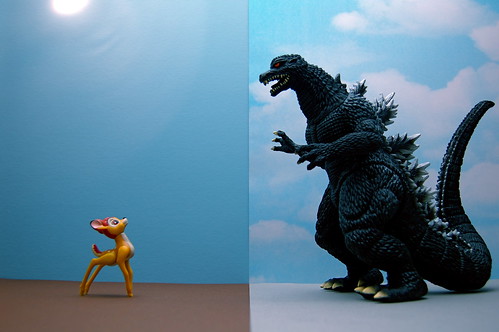Four Tips To Help With Unlearning
Are you more likely to be killed by a shark or a deer?
Did you say shark? If you did, you’re wrong.
You are 300 times more likely to be killed by a deer than a shark. (Source: Boyle Rural Wildlife Safety)
So why do so many people think the correct answer is shark? While shark attacks are rare, they are vividly stuck in our minds and connect with us on an emotional level. If you are over the age of 40, you can quickly recall Jaws with its pounding music and dramatic images. In addition to that, media often hype shark attacks even though they are thousands of miles away from you. But how often do you hear about someone dying because of a deer? Rarely, if ever. Although “deer in the headlights” and deer collisions are extremely common today!
The fact about how a deer is more likely to kill you illustrates the phrase, “What we don’t know is more important than what we do know!” It highlights our ignorance and the that that we need to unlearn some things.
Unlearning Necessary For 21st Century Success
One of the most important strategies we need for success in the 21st century is unlearning.
Unlearning is reflecting on our current knowledge, understanding and perceptions, and then stepping outside of those assumptions to view the situation from a different perspective.
We have to continually evaluate and assess our beliefs about our operating procedures, our understanding of how things work and our accepted theories. When we weigh our assumptions against current research and today’s evidence, we often face a tension that the facts are not aligned with our beliefs.
We have got to find ways to unlearn old habits, procedures and methods that have now been proven to be out-dated and irrelevant. We have to unlearn practices that stand in our way of our own success.
Four Tips For Unlearning
So how do we go embrace unlearning? Jack Uldrich is the master of unlearning. He has been studying and writing about unlearning for years. Here are four tips culled from some of his writings about how to embrace unlearning today.
1. Adopt A Mind-Flex Attitude
We need to realize that what we’ve learned in the past may have been true for that time. We have to be receptive to change and doing things in a fresh and new way.
2. The Question You Should Always Ask
Instead of asking, “What questions do you have?” we should ask, “Are there other questions I should be asking?” It illustrates an open and willing mind to learn. It also highlights our awareness of the things we don’t know.
3. Revisit Old Assumptions To Re-Understand
Most of us are not trained to revisit our beliefs. We need to adopt an attitude to regularly reassess and evaluate our assumptions in light of new research and evidence. We need to “re-understand” a subject or process that we already know. That means suspending “the why” we currently believe something and measure our knowledge from a different perspective.
4. Acknowledge That Ignorance Isn’t Bliss
It is impossible to know everything. We have to frequently remind ourselves of what we don’t know. As Uldrich says, “With an estimated 3,000 new books being published daily and the rate of scientific knowledge purported to be doubling every seven years, it is safe to assume that there is a growing body of knowledge which is relevant to you and your business but which you remain blissfully unaware.”
Remember, what you don’t know can kill you—almost as easily as a deer! Embrace unlearning.
How should we try to re-understand our knowledge? What tips have you used to help yourself leave behind assumptions?



Excellent post. When I’m working with teams its so important to get them to understand their current perspective on a team and I’ve always focused on new learning but you’ve made me think about a different approach of asking them to let go of what they already know to reset the mind set to a healthier one.
Thanks
Lynn